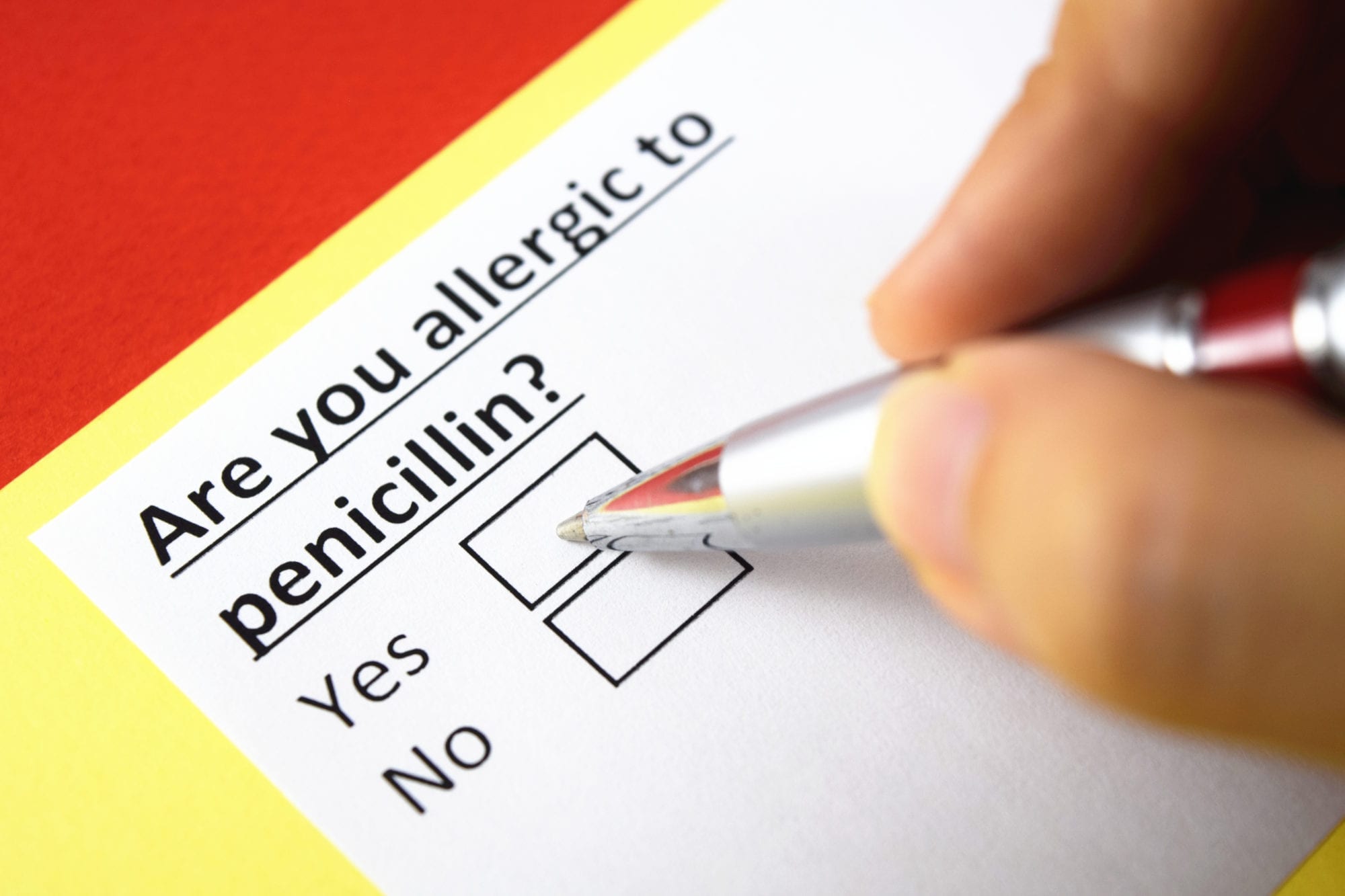Have you been avoiding penicillin for years because your parents told you that you reacted to it as a child? Are you worried your child may have a penicillin allergy because of a rash they developed when taking it? Do you require frequent courses of antibiotic and are worried about drug resistance because there are so few antibiotics you can take?
Penicillin allergy is the most common self-reported drug allergy. Approximately 7-10% of the general population think they are allergic to penicillin. However, recent studies have shown that the rate of positive skin test results to penicillin is closer to 1%. Therefore, nearly 9 out of 10 patients who think they are allergic to penicillin are not and could be safely receiving penicillin without the risk of an immediate allergic reaction. Also concerning is that 20% of hospitalized patients report an allergy to penicillin. Without testing to verify a penicillin allergy, these patients must be prescribed an alternative antibiotic. This has been associated with longer hospital stays, increased antibiotic resistance and greater health care costs.
Many people self-diagnose themselves or their family members with a penicillin allergy due to a rash while taking penicillin. However, many viruses and bacterial infections cause red rashes and those same infections can also trigger hives. For patients who developed rash or hives while taking penicillin for an illness, it can be nearly impossible to identify which was the cause. Some patients have lived most of their adult life assuming they are allergic to penicillin because they were told so by a parent and cannot even remember their initial reaction. Even those with a history of a true penicillin allergy can lose that allergy with time. Approximately 80% of patients stop making allergen antibody directed to penicillin after no exposure for 10 years and are therefore no longer allergic.
As board-certified allergists, we can help identify true penicillin allergy. There is well-standardized skin testing available for penicillin using the drug and its major components that can be done in the office of a board-certified allergist. If the skin testing is negative, there is a 99% chance the patient is no longer allergic to penicillin. To confirm this, a patient with negative skin testing will then take the medication in clinic and be closely monitored for any symptoms. If tolerated, penicillin is removed from their drug allergy list and the patient can safely take that antibiotic (and others in its class like amoxicillin, ampicillin) in the future.




